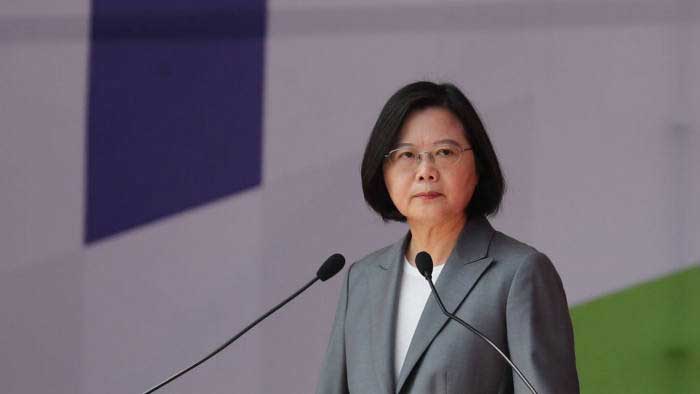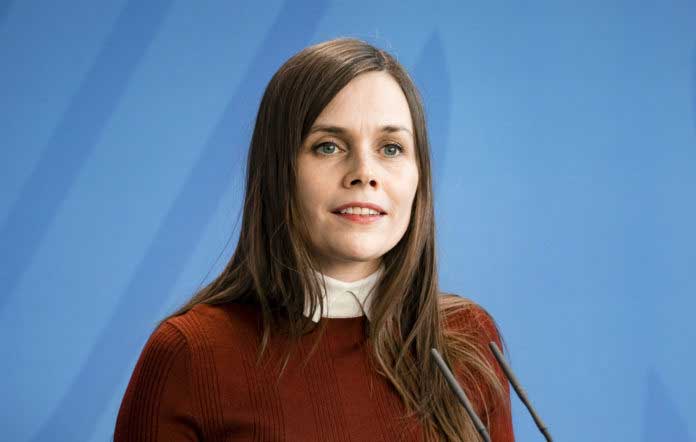Act more like a woman: Women as effective leaders during crisis
by Sam Oliquino / March 31, 2021
Women are more self-aware, motivational, selfless, compassionate, and transformative. People nowadays look for these traits in a leader as it shows that those who possess them prove to be more effective and tend to have programs that cater to people’s needs.
And true enough, women of today are stepping up and showing the world how they, too, can bring effective and impactful aid to society, especially now that we are facing challenging times. As we celebrate the lives of every woman in the world, and as we close Women’s Month, let’s honor some of the outstanding women leaders across the globe that shined as they continue to do excellent work in overcoming the COVID-19 pandemic while holding the highest position in their respective lands.
Tsai Ing-Wen

Taiwan learned its lesson and made sure never to make the same mistakes again when they were hit by the Severe Acute Respiratory Syndrome (SARS) in 2003. During that time, over 150,000 people were quarantined on the island with 181 recorded deaths.
In Taiwan’s efforts to not repeat history, it has become one of the world’s best countries to respond to the COVID-19 pandemic. President Tsai Ing-Wen closed the country’s borders as early as January and developed their own 124 action items to fight the spread of the virus. The action items go beyond border control as Tsai recognizes it is not enough to fully control the rise of cases.
Near the origin of the virus, Tsai quickly banned travelers from China and implemented strict punishments for those who will breach quarantine protocols. She also instructed to have islandwide testing for COVID-19, including retesting of those who have symptoms of pneumonia. Mass production of face masks also ramped up to ensure there was enough supply for everyone, following the requirement to wear them at all times.
Today, Taiwan has over 1000 cases of COVID-19 with a record of 10 deaths only. As the government continues to gain control over the virus inside its territory, it also has been helping other countries in their fight against the virus. Just recently, Taiwan donated COVD-19 medicines and helicopters to South America to support them as the number of cases in the country grows.
Jacinda Ardern

New Zealand Prime Minister Jacinda Ardern’s decisiveness was key to how the country dodged the severe impacts of the pandemic. When the country recorded its first case of COVID-19 in February 2020, Ardern was quick to implement strict measures and began banning the entry of travelers coming from China. Meantime, New Zealanders returning from China were required to undergo quarantine for 14 days. The ban also extended to travelers from Iraq. Strict restrictions were also enforced on those coming from South Korea, northern Italy, and with symptoms.
As early as March 25, 2020, Ardern placed the whole country in lockdown, allowing only essential activities to continue. During the peak of the pandemic in the country, New Zealand only recorded an average of 89 cases a day.
New Zealand may be small but it still is a fully developed country and its government was fully aware that their hospitals, although well funded, would not be able to handle a surge in cases of the virus. A year later, the country’s borders remain closed with a few exceptions. To date, New Zealand only has a death toll of 26 with over 100 active cases.
Katrín Jakobsdóttir

The citizens of Iceland have high confidence in its government under Prime Minister Katrín Jakobsdóttir’s leadership. According to Jakobsdóttir, Icelanders’ coordination with the government and their trust in experts have been essential to their success in battling the pandemic. The country has recorded over 6000 cases since the beginning of the pandemic and tallied only 29 deaths.
Unlike many countries that resorted to lockdowns to alleviate the spread of the virus, Iceland strengthened its testing, contact tracing, and isolation efforts to properly manage the country’s number of cases. Today, they are implementing stricter measures after recording 17 new domestic cases–including cases of the UK variant–since November 2020.
Leisure establishments remain closed while social gatherings continue to be disallowed. Prior to the recording of new cases, life in Iceland has almost returned to normal with students back in classrooms, bars and restaurants packed, and borders opened for tourists. It is also eyeing allowing travelers with COVID-19 vaccination to enter the country and are just ironing out guidelines for proper implementation.
Throughout the years, women have demonstrated their ability to lead with compassion, equality, and fairness. Just like in the COVID-19 pandemic, women should also be at the head of the table in conversations dealing with crises as they can communicate more powerfully, act with integrity and compassion, and promote policies that prioritize rights, equality, and improvement in the quality of life of those belonging in the marginalized sector.
Gone are the days when women are just limited to staying at home and doing household chores. Women today are more involved and proactive in society. They are now builders of a better community wherein life, health and equality are most valued.
While it is still a long way to go in achieving the fairness they deserve, we must continue to empower and educate women around the world for a future that no longer limits a person because of their gender but rather only sees one’s potential and capabilities to create a better society.
Read also:

Image Source: Lindsay LaMont | unsplash.com


